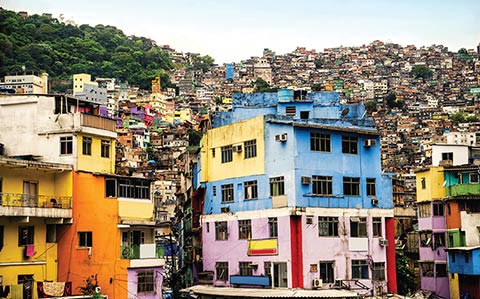U of T is reinventing undergraduate education, and Alexa Waud is already reaping the rewards. A third-year student majoring in peace, conflict and justice studies and environment and health, Waud enjoyed an exciting opportunity for undergrads: conducting field research abroad. While taking Munk One: Global Innovation, a small-group course focused on studying the world’s problems, her professor, Joseph Wong, invited her and two other course participants to join him and two graduate students to study poverty reduction in Brazil.
Over 11 days last December, Waud interviewed government officials in Brasilia about Bolsa Família, the highly lauded poverty-alleviation program that supports impoverished families through cash transfers. (Through Bolsa Família, Brazil has cut dire poverty by 28 per cent in a decade, according to the Economist.) Waud also interviewed social-assistance workers and members of a family-health team, and toured public health clinics and community centres in Belo Horizonte, a city renowned for its food security and urban revitalization programs. Finally, she and her teammates presented findings to the Brazil-Canada Chamber of Commerce in São Paulo. “Seeing the program in action and hearing Brazilians critique it made me realize that its complexity is enormous, which isn’t obvious when you’re reading about it in an academic paper,” says Waud.
Wong, who is working on a policy-oriented paper about the research, says Waud’s experience reflects U of T’s commitment to making undergrad education more experiential, research-oriented and international. “The world is a much smaller place for young people these days,” he says. “U of T wants to ensure we provide research and learning opportunities that reflect this reality.”
Read more about Brazil’s highly effective Bolsa Familia program, from Prof. Joseph Wong.






